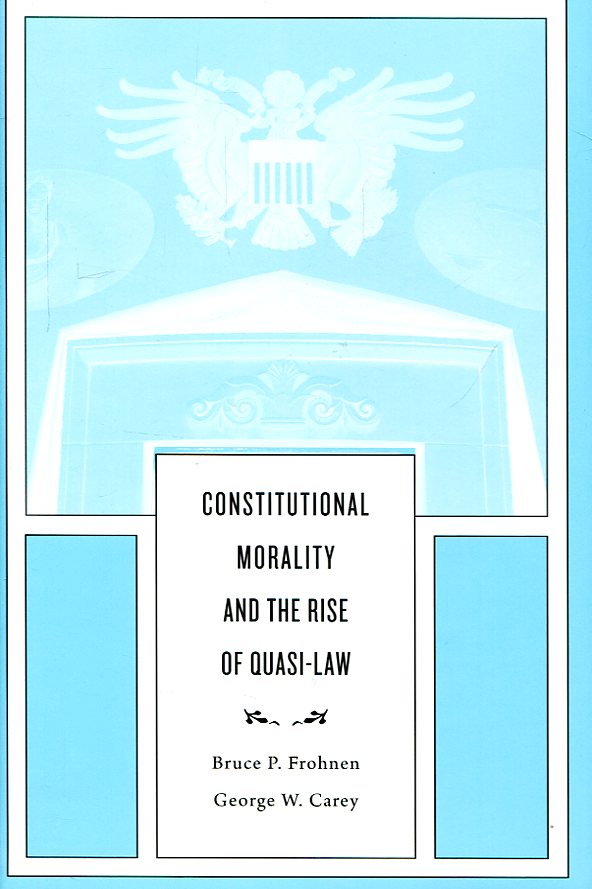Constitutional morality and the rise of quasi-Law
- ISBN: 9780674088870
- Editorial: Harvard University Press
- Fecha de la edición: 2016
- Lugar de la edición: Cambridge(MSS). Estados Unidos de Norteamérica
- Encuadernación: Cartoné
- Medidas: 23 cm
- Nº Pág.: 291
- Idiomas: Inglés

Americans are ruled by an unwritten constitution consisting of executive orders, signing statements, and other forms of quasi-law that lack the characteristics essential for the legal system to function properly. Consequently, the Constitution no longer means what it says to the people it is supposed to govern, and the government no longer acts according to the rule of law. These developments can be traced back to a change in "constitutional morality," Bruce Frohnen and George Carey argue in this challenging book. The principle of separation of powers among co-equal branches of government formed the cornerstone of America's original constitutional morality. But toward the end of the nineteenth century, Progressives began to attack this bedrock principle as impeding government from "doing the people's business." The regime of mixed powers, delegation, and expansive legal interpretation they instituted rejected the ideals of limited government in favor of a model rooted in French revolutionary claims. Progressives replaced a Constitution designed to mediate among society's different geographic and socioeconomic groups with a body of quasi-laws commanding the democratic reformation of society. This vision has become ingrained in American legal and political culture-at the cost of the constitutional safeguards that preserve the rule of law.






